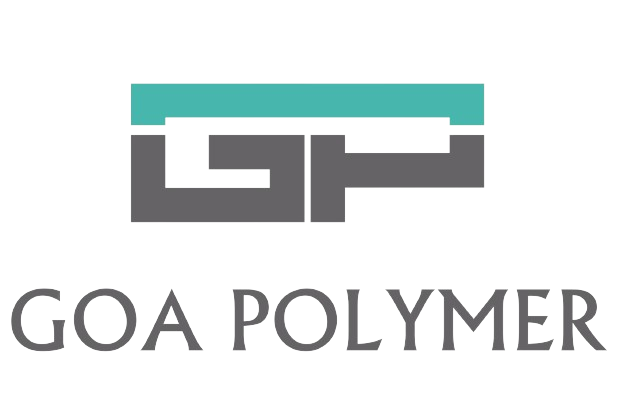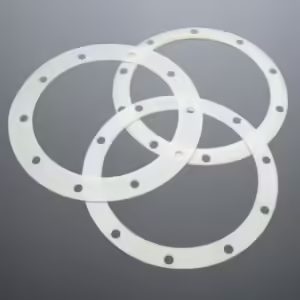At Goa Polymer, we prioritize providing you with the best PTFE glass-filled rods, which all industries have banked on to date for strong, reliable materials. Our rods are used in every application, from heavy machinery to food processing and electronics, as they are tough and long-lived.
Key Features and Benefits of the PTFE Glass-Filled Rods
Our PTFE glass-filled rods are known for strength and reliability. Glass-filled roads are based on just PTFE rods. Here’s why they are great for many applications:
- Stronger Build: The glass fibers make it much stronger than regular PTFE so that you can have extra pressure with weight.
- Superior Heat Resistance: These rods withstand high temperatures without getting out of shape or losing functionality.
- Good Chemical Barrier: PTFE glass-filled rods are not reactive to most chemicals. Thus, it is perfectly safe for use under harsh chemical conditions.
- Low Friction Surface: PTFE smooth, non-stick surface provides less friction and is advantageous in parts where there is lots of movement.
- Highly Stable Under Pressure: The glass-filled material helps these rods maintain their shape even under heavy loads.
- Good Electrical Insulation: PTFE rods display excellent electrical insulation and are safe to use under the electrical field.
- Long-Lasting: Reinforced PTFE ensures a longer lifespan, therefore, you do not have to replace them very often.
Applications of PTFE Glass-Filled Rods
These PTFE glass-filled rods have numerous applications due to their high strength and versatility. Some of the common industries that use them are:
- Mechanical Engineering: It serves well for parts like seals, bearings, and bushings in heavy machines.
- Automotive Industry: They are useful in those places where the parts of cars get hot or require strong and highly durable materials.
- Chemical Processing Plants: They are ideal for handling chemicals in tough environments.
- Electrical and Electronics: Suitable for insulation and other electrical components that need to bear high temperatures.
- Food Processing: Allowed in food machinery due to the elements’ suitability for high temperatures and friction resistance.
- Aerospace: Suitable aircraft components that require high performance and minimal friction.
- Medical Devices: Nontoxic for usage in medical machines and appliances.
Available Sizes and Specifications
Our PTFE glass-filled rods come in many sizes and shapes to fit different needs. Below are some common sizes we provide, and custom options are also available:
- Diameter Options: Diameters run from small to big depending on your type of project.
- Length Options: We produce these as standard lengths; however, custom lengths can be manufactured.
- Glass-Fiber Content: Varying percentages of glass filling are offered for different strengths.
- Color Options: The rods come in natural colors and, where desired, the customer can choose special colors too.
- Temperature Rating: Our rods can sustain a temperature range from -200°C to 260°C.
- Precise Tolerances: These rods are produced under industry tolerance standards, ensuring a perfect fit every time.
Mechanical Properties
| Property | Value | Standard (Norm) | Description |
| Tensile Strength | 20-35 MPa | ASTM D638 | Ability to withstand pulling forces without breaking. |
| Elongation at Break | 150-200% | ASTM D638 | Flexibility under tension before breaking. |
| Compressive Strength | 10-15 MPa | ASTM D695 | Resistance to compressive forces without deformation. |
| Hardness (Shore D) | 60-65 | ASTM D2240 | Surface hardness indicates resistance to indentation. |
| Density | 2.2-2.3 g/cm³ | ASTM D792 | Weight per unit volume. |
| Flexural Strength | 15-25 MPa | ASTM D790 | Ability to resist bending without breaking. |
Thermal Properties
| Property | Value | Standard (Norm) | Description |
| Service Temperature Range | -200°C to 260°C | – | Temperature range where the material can function effectively. |
| Short-Term Maximum Temp | 300°C | – | Maximum temperature the material can withstand for short durations. |
| Thermal Conductivity | 0.25-0.69 W/mK | ASTM C177 | The ability of the material to conduct heat. |
Electrical Properties
| Property | Value | Standard (Norm) | Description |
| Dielectric Strength | 18-20 kV/mm | ASTM D149 | Ability to insulate against electric voltage. |
| Volume Resistivity | 10^17 Ohm·cm | ASTM D257 | Measure of electrical resistance across its volume. |
Other Properties
| Property | Value | Standard (Norm) | Description |
| Coefficient of Friction | Low (slightly higher than virgin PTFE) | ASTM D1894 | Measure of the material’s smoothness and ease of movement. |
| Water Absorption | <0.01% | ASTM D570 | The amount of water absorbed by the material makes it ideal for moisture-rich environments. |
| Chemical Resistance | Resistant to most chemicals, except alkalis | – | Ability to withstand chemical corrosion. |
Why Choose Goa Polymer for PTFE Glass-Filled Rods
Goa Polymer offers the best PTFE glass-filled rods for extreme conditions. We are a well-reputed manufacturer and supplier of a range of PTFE products. Here’s why we are the preferred supplier:
- Quality Products: Every PTFE rod meets top-grade standards, courtesy of our team.
- Special Sizes and Shapes: We can arrange rods in special sizes or shapes for special projects.
- Top-Grade Materials: We use premium PTFE and glass fibres for top-grade products you can depend upon.
- Affordable Prices: It comes without a compromise on value at affordable prices for you.
- Dedicated Support: We will answer your questions and help you find the right rod.
- Fast Shipping: Time is money. We want to make sure that you get your order as fast as possible.
- Eco-Friendly Practices: We care about the environment. Our manufacturing processes are safe, and we have environmentally friendly practices.
Frequently Asked Questions
Can I use PTFE glass-filled rods in high-pressure applications?
Yes, these rods are reinforced to handle high-pressure environments without deforming, making them suitable for demanding applications.
How can I know what percentage of glass filling I need?
The glass fiber percentage affects strength and durability. Higher percentages are better for tougher environments. Contact us, and we can guide you based on your specific needs.
Are PTFE glass-filled rods resistant to UV rays and weather conditions?
Yes, PTFE glass-filled rods are resistant to UV rays and weather, which makes them suitable for outdoor applications.
What’s the difference between PTFE glass-filled and carbon-filled rods?
Glass-filled PTFE is ideal for general durability and heat resistance, while carbon-filled PTFE provides extra electrical conductivity. Choose based on your project’s requirements.
Can PTFE glass-filled rods be machined into specific shapes?
Yes, these rods are easy to machine into custom shapes, making them versatile for various applications.
How can I ensure these rods won’t react with other materials?
PTFE is chemically inert, meaning it rarely reacts with other materials. Glass-filling does not alter this property, making it safe to use with most chemicals.
What if I need technical advice on using these rods?
Our team is always here to help with technical questions or advice. Just ask, and we’ll provide the information you need.












Reviews
There are no reviews yet.